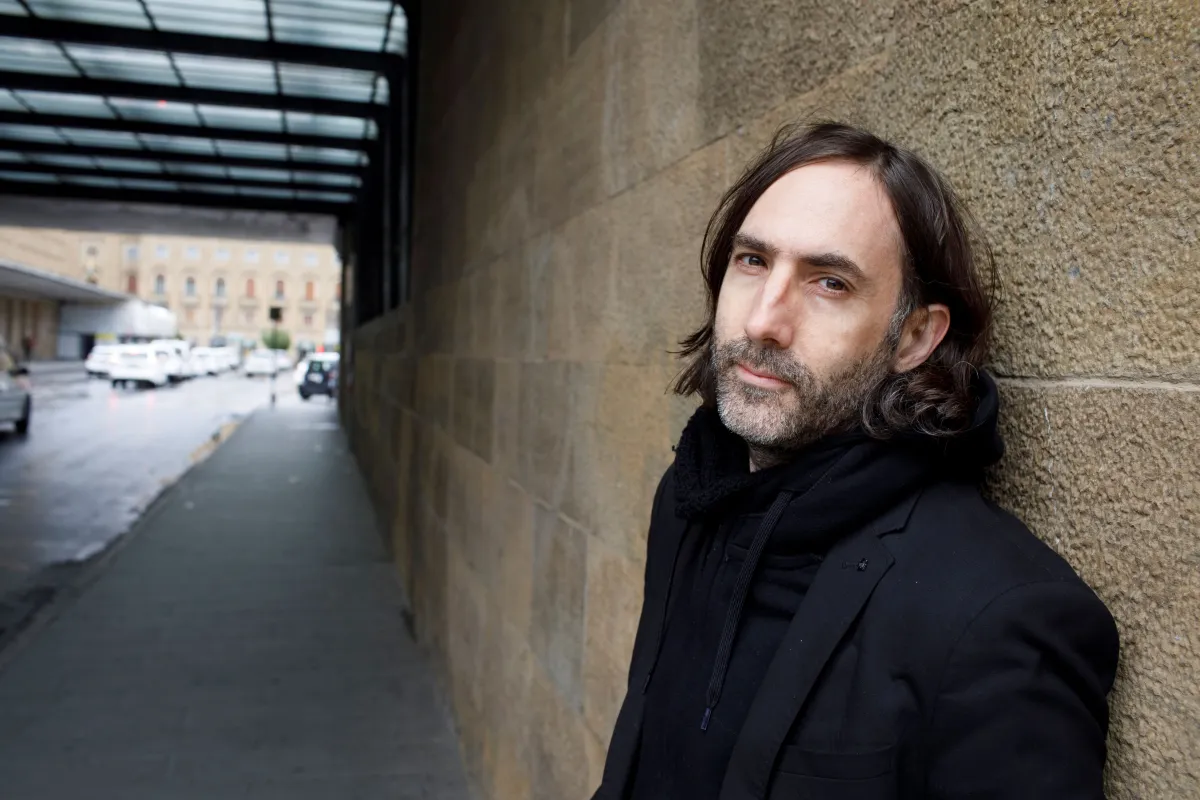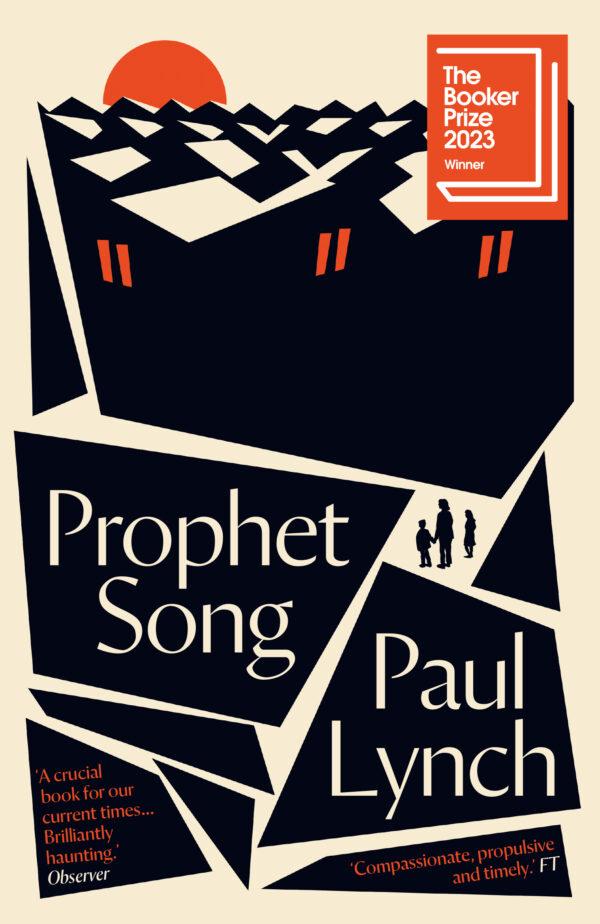We were all sleeping

 Oneworld
OneworldPaul Lynch | Prophet Song | Oneworld | 320 pages | 9,99 GBP
You have been asleep all your life, we have all been asleep, and now the great awakening begins. (p. 45)
We don't know whether Eilish Stark is talking to herself here. Perhaps this is also an inner dialogue with her husband Larry, arrested a few days earlier in an unrecognisable Ireland of the near future. Events preceding this appear normal. After democratic elections, a nationalist party comes to power - perhaps in the late 2020s, although the exact year remains unclear. There is resistance to its repressive approach, with protests against restrictions on freedom of expression and the dismantling of the rule of law. The new leaders react harshly, introducing surveillance and laws to enforce authoritarian measures.
Eilish Stark, from whose perspective the story is told, is a microbiologist in a good position at an international company, and mother of four children, one of whom is still a baby. Her husband, Larry Stark, is deputy general secretary of the teachers' union. Shortly before a planned demonstration by the teachers, two secret service agents ring the Starks' doorbell late at night, asking to speak to Larry. However, he is not yet home. The agents are friendly, but at the same time seem threatening. Why have they come at this late hour? Why do they want to talk to Larry? They leave their card and ask that Larry calls at his earliest convenience.
In this very first scene, we are drawn into the story. Eilish feels a shock, something is pushing its way into her life. She watches the two agents walk off into the night:
... she stands there for a moment, looking at the map, and realizes she's been holding her breath. The feeling now that something has come into the house, she wants to put the baby down, she wants to stand there and think, understand what happened with the two men and how it came into the hallway unbidden, something formless and yet palpable. She feels it creeping alongside her as she walks through the living room past the children, ... she wants to clear her laptop and diary from the table, but stops and closes her eyes. The feeling that came into the house followed her. ... The darkening garden no longer holds any wishes, because something of this darkness has come into the house. (p. 11)
Paul Lynch's language conveys the anonymity, the impenetrability of the threat; elusive, yet concrete like the black of night. The novel uses no indication of direct speech; no distinction is made between thought and conversation, resulting in a rapid, rhythmic pace that makes the sense of oppression palpable, the increasing powerlessness, the helplessness, the feverish thoughts and the stress triggered by the escalating political events. The characters feelings are not described, but translated into vivid images and transformed into action.
At first, Eilish still believes in the existence of the rule of law: "... emergency decree or not, there are still constitutional rights in this country ...". But then her husband disappears and we never find out where he is being held or what happens to him. Investigating this becomes dangerous and ultimately impossible. Eilish herself loses her job and has to face increasing restrictions and obstacles in her life - meanwhile she must try to keep her family together, explain the absence of their father to the children, care for the baby, and endure the harassment to which the family is subjected because of the supposed threat Larry represents to the state. The adolescent daughter rebels. The older son joins a resistance group because he is conscripted into the army and cannot begin his medical studies. What happens to the adolescent younger son is so terrible that it is difficult to talk about.
Without ever making allusions, images from the past and present force their way into the reader's consciousness, un-asked for associations - the suppression of protests in Belarus or Iran; the inhumane restrictions imposed on the Jewish population immediately after the Nazis came to power; the cold stores filled with dead bodies in Chile, after the military coup, as shown in the film "Missing". Or the language of right-wing extremist parties and authoritarian movements in contemporary Europe.
The novel will not be retold here. Suffice to say, in the end, the mother manages to flee the devastated country with her daughter and baby. While she waits in a larger group, housed by smugglers in an interim accommodation, for the ship that will take them to safety, another mother sums up what many could not grasp:
... how could anyone have even known what was going to happen, others apparently did, but I never understood how they could be so sure, well, you could never have imagined it, not in your life, what was going to happen, and I never understood those who left, how they could just leave like that, leave everything behind, their whole lives, how they lived, for us it was completely out of the question at the time, ... and then when it got worse, we just had no more room to manoeuvre ...
Paul Lynch's novel is fitting for these times. In recent years, more and more books have been published that deal with the threat to democracy and its defence. Roger de Weck, the former editor-in-chief of Die Zeit, makes a plea in The Power of Democracy. A response to the authoritarian reactionaries for real democratic elites who act responsibly, put the interests of the community above their own and preserve democracy. In his book How Democracies are Dying, Harvard political scientist Daniel Ziblatt diagnoses a global battle between democracies and autocracies. He sees the democratic world under pressure, religious-totalitarian and authoritarian regimes on the rise and, for him, real danger arises when "mainstream politicians" in democratic countries ally themselves with authoritarian parties. Finally, in The Axis of Autocrats, Anne Applebaum, winner of the 2024 Peace Prize of the German Book Trade, demands that we see through the corruption, control and propaganda of authoritarian regimes and counter the temptations of authoritarianism with the will to defend democracy. And she also says: "We are waking up very late."
The list could go on. Prophet Song, however, is different. It does not analyse, it does not preach. Rather, it appeals to the emotions. Does the book give hope? Does it allow something positive to emerge from the dark vision of a not implausible future? Yes, despite everything! You come out of the book well, precisely because it touches the heart, because it creates the will to resist, and strength - an inner certainty that you want your eyes wide open to what is happening. That we will not give up the democracy that can guarantee us human dignity, freedom of opinion, legal certainty, that makes possible free elections, education for all, social security - and a peace of mind that allows us to sleep without fear of being taken away by henchmen, without fear of daily exposure to state arbitrariness. So reading Prophet Song is perhaps even more worthwhile than any political treatise, no matter how indispensible they may be.



